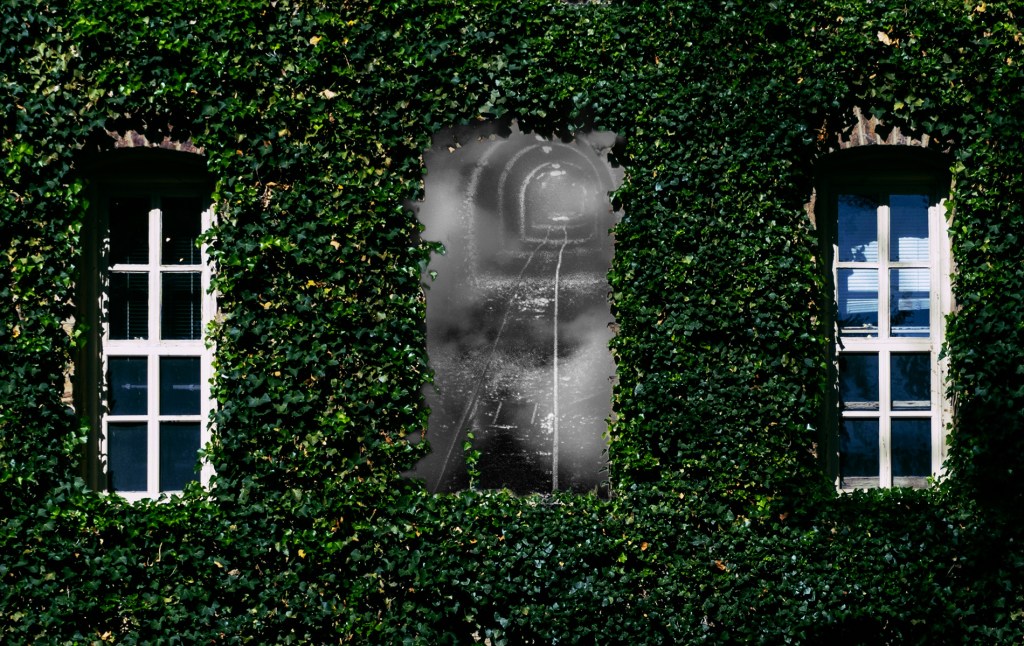When I was admitted to Yale in 2018, I knew that my life was going to change. My parents, a cashier and a mechanical designer, had raised me and my brother to do well in school so that we could get good jobs one day—jobs that would take us away from Gallia County, our rural home in coal country on the Ohio River, though I’m not sure my parents knew that then. I myself didn’t know just how significant this change would be, though a friend in high school seemed to have an idea. “You are going to find so many people like you at Yale,” she said.
I didn’t understand what she meant. Wasn’t I like her? We had the same friend group, we both played sports, had been in student government, and were near the top of our class. I hadn’t always fit in at school, but it was hard for me to imagine someone I was more alike than her.
In retrospect, it’s remarkable that my friend could see what I couldn’t: that admission to an elite university changed not only the education I received, but also the kind of people I would be rubbing elbows with. And while my friend was correct that I was able to relate to my new Yale peers in ways that I hadn’t related to many in my hometown, one point of dissonance was my being rural. My new classmates were overwhelmingly from suburbs of hip cities on the coasts and had attended elite high schools. Many had been abroad before—I wouldn’t go abroad until I was 19, to Italy on a scholarship-covered summer program—and none of them seemed particularly fazed by any financial concerns, which for me extended to eating out and purchasing class books. Even the ones from suburbs of cities in remote Western states assumed we must have had similar-enough upbringings. It was hard to explain to them what rural poverty was like, or even what rural wealth and markers of success look like.
You might think that going home for breaks, then, would be a balm. But it was harder to relate to my high school friends, many of whom had stayed local and were marrying young. I couldn’t talk about current events without worrying that I came across as a know-it-all, snob, or newly out of touch. They say, don’t forget where you came from—but even though I never forgot, a distance still widened.
Mara Casey Tieken, a professor at Bates College, tackles experiences like mine in her new book Educated Out: How Rural Students Navigate Elite Colleges—And What It Costs Them. In Educated Out, she follows nine first-generation, low-income students from rural areas entering an elite liberal arts college she anonymizes as Hilltop College, interviewing the students and their parents periodically over the years about their lives during college—and beyond.
Despite coming from different backgrounds, the rural students have similar experiences at Hilltop—experiences that reminded me of my own. New acquaintances go skiing and take spring break trips abroad, peers drink and party heavily, and class materials are exorbitantly priced. Tieken’s interviewees struggle socially to adjust to the new world of exceptional privilege that their classmates seem to take for granted. “In general,” Tieken writes, “Hilltop students don’t talk about money. You can tell who has it, though. It’s everywhere: in their Canada Goose jackets and their L.L. Bean boots and their family vacations to Italy.”
And while the students were among the brightest of their rural high schools, they struggle to adjust academically as well. Some failures lead to shifting career trajectories, such as for one student who couldn’t finish pre-med requirements and instead worked in a lab after college. Others embrace the liberal arts curriculum more than they or their families anticipated, opting to pursue majors in subjects that don’t necessarily lead to stable careers, much to the confusion of their parents.
After they graduate, these nine Hilltop students struggle to map their careers or find high-paying jobs in their fields of study. Forced to choose between summer research positions and summer retail jobs with higher hourly wages to afford class materials and rent, some of Tieken’s students, with comparatively less impressive résumés than their peers, are unable to secure the work their education promised. Others are more outwardly successful, but conflicted and feel irrecoverably distant from their families and the values they were raised with. As one student who found lab work in Boston said: “I am more likely to have a life like the people I went to Hilltop with. … Grow up in a nice town, go to a nice prep school, go to a nice college, have children … [but] there’s definitely a part deep down that is afraid that’s going to just not make sense to my parents and is going to make it hard for me to connect with them. … It makes me very sad.”
While relationships with home change, so too do relationships with parents. One student Tieken interviews is comfortable being openly gay at Hilltop, but conceals this information from his parents. Other students who adopt more liberal politics face heightened tension at home. But beyond this, the students also face socioeconomic estrangement from their parents who now lack, through no fault of their own, the vocabulary and experience to understand their children’s life. “As much as he wants the expensive clothing and lavish vacations of his wealthy peers, their wealth is a problem—an indication of the economic inequalities that disadvantage families like his and, sometimes, keep his father out of work,” Tieken writes about one student. “He understands that his parents’ inability to understand his experiences may be more about Hilltop’s ‘exclusionary’ language than any failure of theirs.”
It’s this dual estrangement from new friends and old family that most struck a chord with me. Whatever knowledge these sorts of students at elite schools gain is offset by the confusion of values and uncertainty of how to plan the future. With loans and the expectations that come with an elite degree, the credentialing rat race of elite education doesn’t end with graduation. For many of us rural expatriates, recovering home—wherever it is, whoever it is with—will be a task sorted out in the decades after leaving college. Unable to reconcile a desire to return home with the security and opportunities education provides, Tieken’s students and I find ourselves always outside of where we feel we should be. “We present rural and other geographically underrepresented youth with a choice,” Tieken writes. “Either they can go to college and live an adult life far from home, or they can stay, remain close to family, and get ‘stuck’ in a low-wage job. The reality, of course, is complex. … But to many students, this is the choice we offer: college or home.”
At least, that’s the choice you get when you’re younger; when you’re older, and out of college, home becomes a little more nebulous, the choice less clear-cut. I don’t know where I’m going next, but none of the immediate paths take me back to Gallia County, or even back to West Virginia or Ohio, where my family lives. When I check the Yale career office’s job board, I find zero jobs listed in West Virginia or Ohio—despite several large, growing metropolitan areas in the latter, nearly every job listed is located in New York City, Washington D.C., Boston, or the Bay Area. My parents ask if I’ve considered roles at the new steel mill opening across the river from our hometown, but despite my résumé and diploma—or perhaps because of them—I’ve never been less prepared to do manual labor in my life.
When I talk to promising kids at my high school, I tell them about my lack of debt, the range of academics and extracurriculars I had exposure to at Yale, about the access to certain careers that would be harder to attain without a diploma from an elite university. I don’t talk about the chip on my shoulder about being rural that I acquired with my degree, or about the wealth of my peers, or about the way returning to Ohio feels distant. If given the choice between Yale and a state school again, I would probably make the same decision I made. But I’d still be stuck in between two parts of the country, parts that I’m not sure will ever be reconciled. For many rural students, elite college admission upheaves everything they know and expect for themselves. As proud as I am of my Yale career, and as proud as Tieken’s students are of their own at Hilltop, the achievement comes with an enormous asterisk. Education might help us financially and intellectually, but the tradeoffs are real and steep—and will continue to be for rural students and their communities.
Correction, May 3, 2025: The author of Educated Out is named Mara, not Mary.









Please note that we at The Dispatch hold ourselves, our work, and our commenters to a higher standard than other places on the internet. We welcome comments that foster genuine debate or discussion—including comments critical of us or our work—but responses that include ad hominem attacks on fellow Dispatch members or are intended to stoke fear and anger may be moderated.
With your membership, you only have the ability to comment on The Morning Dispatch articles. Consider upgrading to join the conversation everywhere.